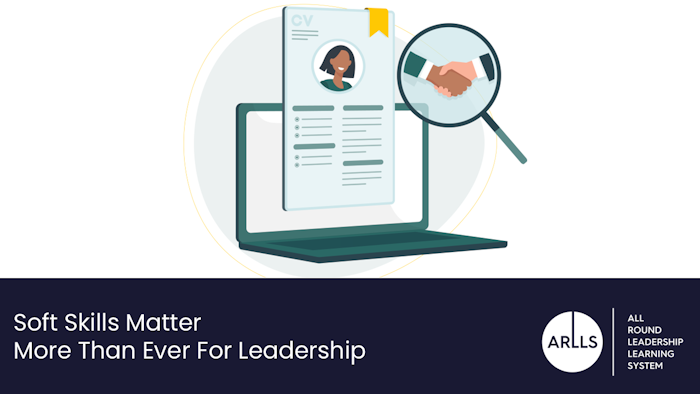As the Fourth Industrial Revolution (4IR) transforms the way we work and live, the skills required to thrive in this new era are also evolving, thus creating a huge demand on our young leaders. While technical expertise remains valuable, soft skills—such as adaptability, emotional intelligence, and critical thinking—are increasingly seen as the key drivers of leadership and organisational success. Soft skills might not just be complementary to hard skills though; they are essential enablers for navigating the complexities of the 4IR. Let’s explore why these skills matter so much and how your young leaders can develop them effectively.
The Critical Role of Soft Skills in Leadership
- Empathy and Emotional Intelligence Build Trust: The ability to understand and relate to others is crucial in today’s diverse workplaces. Emotional intelligence helps leaders build trust, foster collaboration, and create environments where people feel valued.
- Adaptability and Flexibility Drive Innovation: The 4IR demands leaders who can adapt to rapid changes and embrace new technologies. Adaptability not only helps teams navigate challenges but also encourages creative problem-solving.
- Critical Thinking Enhances Decision-Making: In an era flooded with data, leaders need to analyse information critically to make informed and ethical decisions. This skill allows them to distinguish relevant insights from noise, enabling better strategies and sustainable outcomes.
4 Soft Skills Needed for the Digital Age
- Leadership: Inspiring teams to achieve common goals.
- Collaboration: Working effectively across diverse teams.
- Ethical Awareness: Understanding the responsible use of data and technology.
- Active Learning and Innovation: Continuously seeking knowledge and improving processes.
Organisations already place pivotal importance on soft skills, many managers don’t hire without soft skills in mind. However, young leaders, their teachers and companies need to prioritise soft skills in workforce development, as these are increasingly pivotal for employability and entrepreneurial success. Notably, soft skills like adaptability and emotional intelligence are seen as more important than hard skills, with some studies attributing up to 85% of business success to these abilities.
To Succeed in the 4IR, Your Young Leaders Should Do These 4 Things
- Embrace Continuous Learning: Stay updated on industry trends, invest in professional development and have organisations who invest in their development too.
- Cultivate Emotional Intelligence: Practice active listening and empathy in daily interactions so that in the workplace, they don’t need to be trained further on being effective communicators.
- Foster Collaboration: Create spaces for diverse teams to innovate and share ideas in the classroom, on the sports field and in volunteer spaces.
- Prioritise Ethical Decision-Making: Ensure that technology and data are used responsibly and consider all the stakeholders before they act. Who will be affected and how?
By integrating research-backed approaches, ARLLS ensures that its participants are prepared to lead with confidence and integrity in a rapidly changing world.
Soft Skills Are No Longer Optional
As research and practice show, soft skills are essential for leadership and organisational success. By developing these abilities, leaders not only drive better outcomes but also build resilient, innovative teams ready to face the future.
Resources
Harvard Business Review. 2019. How Leaders Are Navigating the Fourth Industrial Revolution. Harvard Business Review. Available: https://hbr.org/sponsored/2019/03/how-leaders-are-navigating-the-fourth-industrial-revolution [Accessed: 28 November 2024].
Mabe, K., & Bwalya, K. 2022. Critical soft skills for information and knowledge management practitioners in the fourth industrial revolution. South African Journal of Information Management, 24(1), 11 pages. https://doi.org/10.4102/sajim.v24i1.1519



